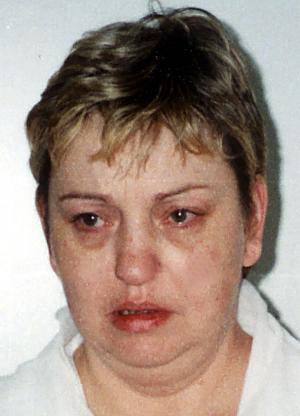Murderer loses her bid to cut jail term
Date published: 27 October 2008
A CHADDERTON woman serving life for her part in butchering and dismembering an innocent man, has failed to convince top judges to reduce her term behind bars.
Julie Barker’s lawyers argued on Friday her “exceptional progress” in prison, plus the “invaluable help” she gave police in investigating another matter, meant her release date should be be brought forward.
But London’s Appeal Court said she had already been given six months off in recognition of that, and she must still serve 14-and-a-half years before she can even apply for parole.
Barker (47) and her husband James Crawford (52) were each jailed for life in December 2001 after they were convicted of murdering 25-year-old Ryan Hetherington, whose carved-up corpse was discovered in a crashed car.
Mr Hetherington died after he had encountered the duo during an evening’s heavy drinking in January 2001. They ended up at Crawford’s flat in Wimpenny House, Oldham where Mr Hetherington died.
They murdered then dismembered Mr Hetherington, and stored body parts in bin-liners and laundry bags. Crawford was responsible for the actual dismemberment.
Several days after the murder they persuaded a friend to dispose of the remains in his car, but the driver crashed in Liverpool, leading to the gory discovery.
At trial the couple blamed each other for the murder.
The judge at Barker’s trial recommended that she serve a minimum “tariff” of 15 years before she could apply for parole, and that was later confirmed by the Lord Chief Justice.
However, in April, High Court judge, Mr Justice Mitting, reduced that by six months, largely to take account of the progress she had made in prison.
Ben Nolan QC, for Barker, argued at the Appeal Court that a six-month reduction was nothing like enough to reflect her “exemplary work and disciplinary record” in jail, her “genuine remorse”.
The barrister also pointed out that Barker had agreed to be a prosecution witness in a case against a fellow prisoner and she deserved credit for the assistance she gave.
However, refusing to cut Barker’s 14-and-a-half-year tariff, Lord Justice Latham said that, although she was to “be commended” for her good behaviour and assistance to the police, she did not deserve a further reduction in her tariff.
The ruling means that Barker can apply for parole in June 2015, but not before.





